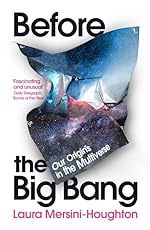January '24 Monthly Review
This post is the first in a new quest to 'work with the garage door up' - a monthly roundup of what I have been up to.
Work
For the last year, the teams that I lead have been re-writing Tesco Bank's Home and Car insurance online application journeys. We launched the new journeys last year for direct applications - i.e from our website. This month, we finalised the integration between the Home insurance application and three of our price comparison commercial partners. There's a large amount of cloud optimization we can take off the back of this work, which means we'll be running a leaner, greener and more user-friendly product.
A significant piece of development that I got to do in January was around our continuous delivery strategy. My applications run on auto-scaling EC2 instances which run in a blue/green setup utilising weightings on a load balancer. An S3 bucket serves the static content for the applications, which didn't operate under a blue/green setup. I developed a process to estalish which colour stack is the current online leg, deploys the static content to the opposite colour and ensures the EC2 instances load from the correct bucket.
The engineering lead role gives me opportunity to deep dive into unfamiliar territory. We use DataDog for monitoring and alerting, which integrates via a webhook to ServiceNow. Our build tooling provisions a bunch of system-level monitors in Datadog for all the infrastructure it Terraforms. We'd noticed that our load balancer latency and error monitors were going haywire, seemingly sporadically. They always self-recovered and other monitors indicated there wasn't a problem - the applications were up, serving traffic and not under heavy load. What was the problem? I did some digging and found out the issue pertained to sampling and averaging data in a small rolling window - which is notoriously prone to spikes in activity. At certain points in the day a single delayed request was enough to trigger these monitors. Once I identified the fix it became a matter of finding the sweet spot - where anomalous data alone wouldn't trigger, but sustained failures and network delays would.
Books
I had a pretty productive month for reading in January. Here are some of the standout books:
Before the Big Bang: The Origin of the Universe and What Lies Beyond by Laura Mersini-Houghton

Part autobiography and part summary of a life's work into multiversal theory, including string theory and the cosmic microwave background. The author grew up in Communist Albania and covers her journey into academia and how this perspective led to her contributions in cosmology. There's little about 'before' the Big Bang - perhaps a quirk of the publishers?
Tomorrow, and Tomorrow, and Tomorrow by Gabrielle Zevin

This a fantastic work of fiction. Two brilliant but highly-flawed individuals lives revolve around each other. They develop a video game together, build a successful video game company off the back of it, and become intertwined with their mutual friend Marx (who is by far the most interesting character). The story is emotional. It doesn't pull its punches, and gets dark in places. The documentary-like style gives the morally-gray characters the space they need. There's timeline jumping and in and out-of-game segments - I found the real world stuff being much more engaging.
The Starless Sea by Erin Morgenstern

This book did not resonate with me. I loved her previous work The Night Circus (despite not sticking the ending) and had high hopes for the sophomore novel. The mysteries are preserved through obfuscation and amount to nothing. The prose has an almost lyrical style, highly fantastical. Lots of description of pretty much nothing, with an ending that once again, just fizzled out.
There is Nothing for You Here: Opportunity in an Age of Decline by Fiona Hill

This hits home, almost literally. It documents the author's childhood in North East England. Despite the challenges in place by her background, her sex and her location, the book covers getting a place at the University of St Andrew's, working in the USSR on an exchange program, moving to the US and then to the White House in the National Security Council during the Trump Administration. Fiona Hill would make an excellent Labour politician, she is incredibly passionate on the politics of education, aspiration and opportunity.